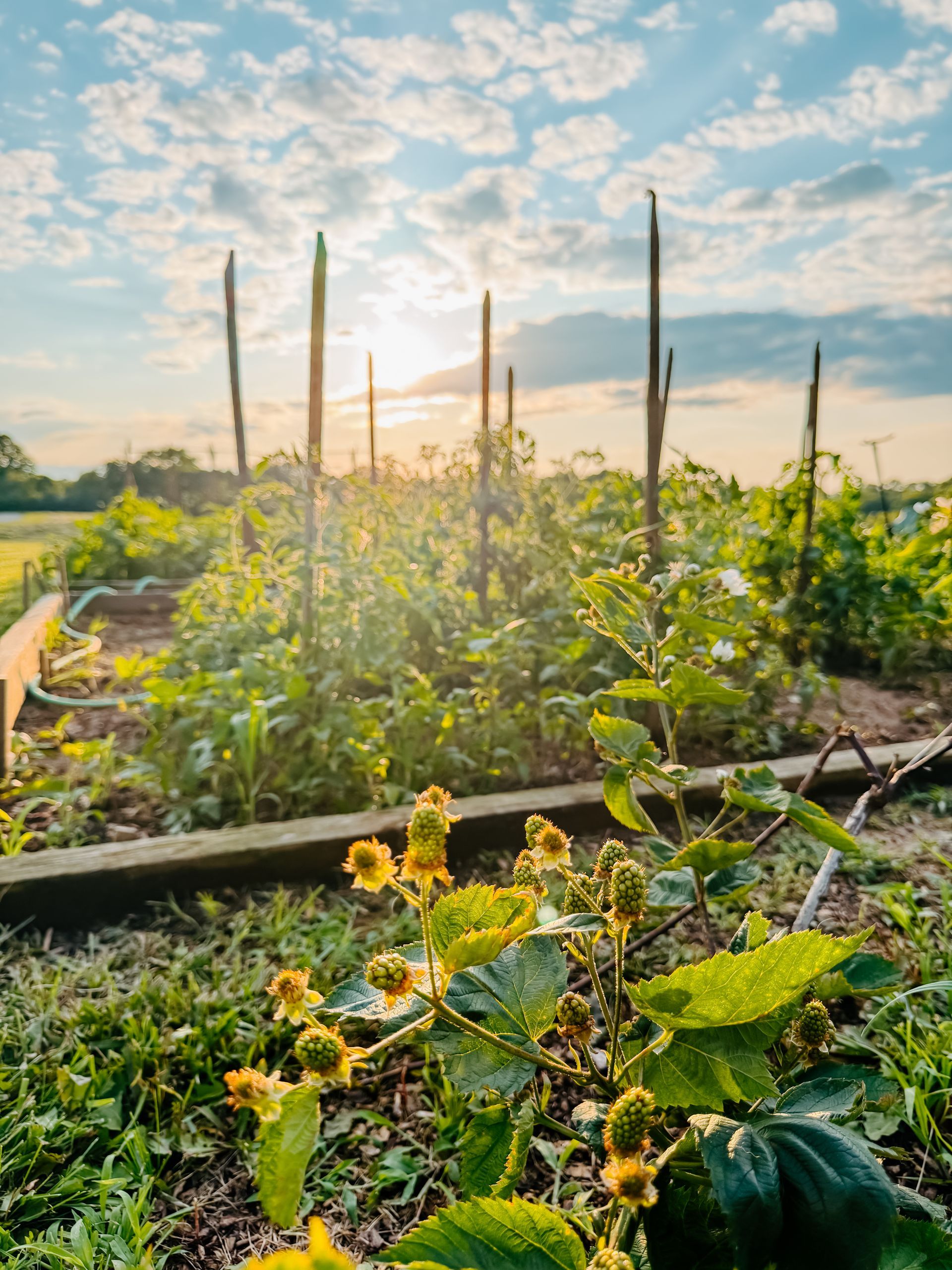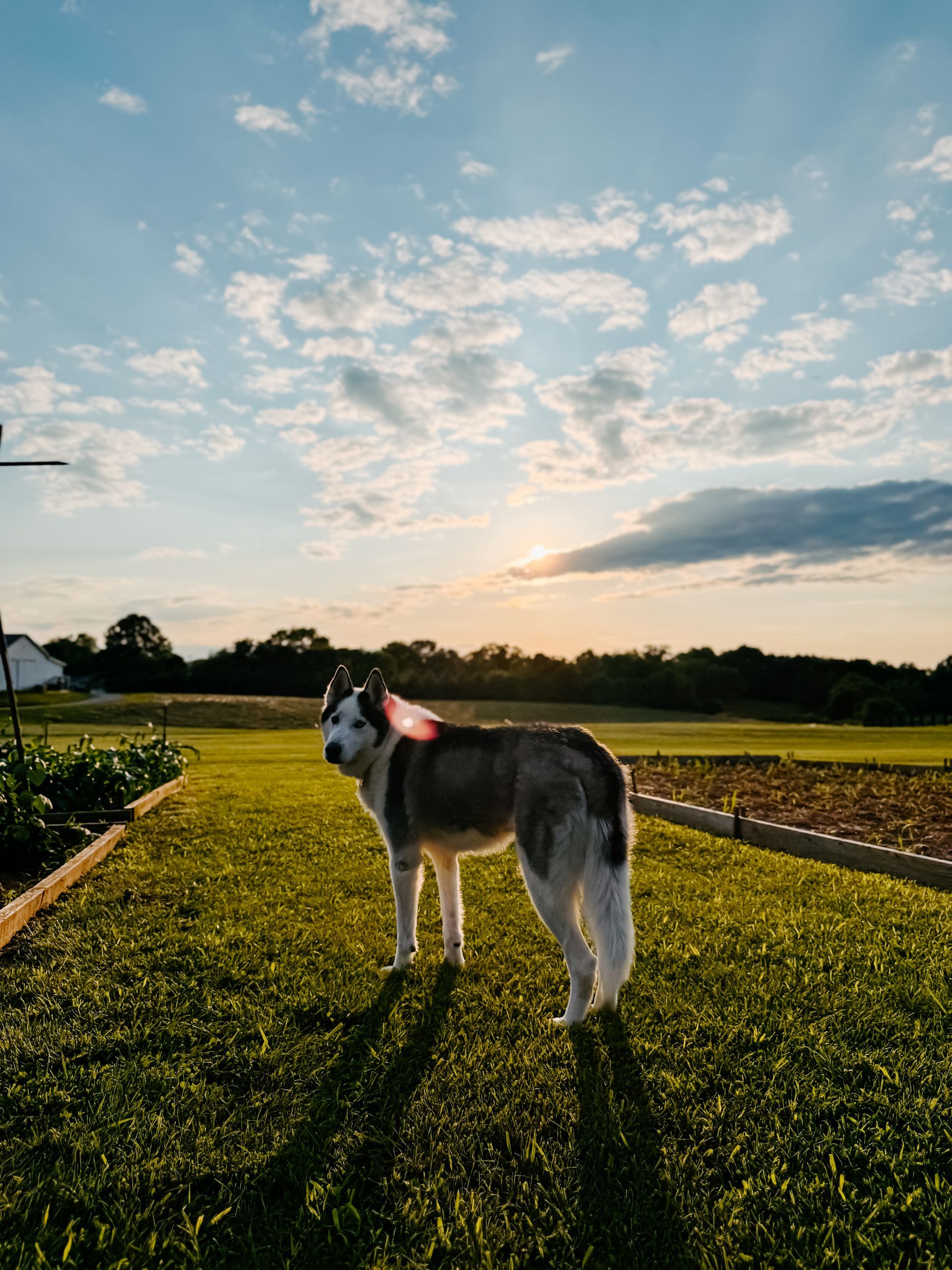The Garden Keeps Me Grounded - Paying Homage to Summer
Sunlight and Soil: A Love Letter to Summer Harvest
I’ve always loved the heat.
Not in a surface-level way—I mean I really love it. The way it slows things down, wraps
around you, makes you pay attention. Most people complain when it gets too hot, but I usually
just say, “I kind of love it.” Because I do. I always have. The heat feels like home to me. It’s tied
to days working on the line and garden rows, to the songs of cicadas and the smell of tomato
vines. To me, the heat holds memories. It holds meaning.
I grew up watching my grandfather work in the kind of heat that would drive most people
back inside. He didn’t care. He moved through his garden like it was part of him. He’d lost four
fingers on one hand and had damage on the other, but he never stopped. He made his own tools to
keep going. Built grips that worked for him. Nothing about it was easy or convenient, but he
never made it feel hard. He found joy in the work. He loved to grow things. And more than
that—he loved to share what he grew.
He had these scarecrows he’d put up every year. He made them out of whatever was
around—old shirts, a faded hat, a stick for a spine. They looked a little lopsided sometimes, but
they stood tall in those rows, like quiet guardians. I still picture them when I think about that
garden.
He also grew the best watermelons I’ve ever had. Huge and heavy, dark green, always
sweet. He’d slice into one straight from the garden—warm from the sun—and we’d eat it right
there, juice running down our arms, spitting seeds into the grass. We didn’t care about the mess.
That was part of it. That’s still my favorite way to eat watermelon—unwashed, sun-warmed,
straight from the vine. Nothing else comes close.
He tended bees too—nursed them through the winter, checked on them in the spring, and
by summer, they were busy buzzing and producing. I remember how carefully he moved around
them, calm and steady like they could feel his intention. And when the time came, he’d take out
his pocketknife and cut honeycomb straight from the hive for us. We’d stand there barefoot in the
grass, wax sticking to our teeth, honey running down our chins like it was the best thing in the
world—because it was. Writing that down makes my chest ache in a way I didn’t expect. I didn’t
realize how much I missed that until now.
And when it came to canning? That was a whole ritual of its own. My grandfather, mom
and grandmothers would spend hours in the kitchen—peeling, slicing, stirring, pouring. Steam
fogged up the windows, and the smell of tomatoes, corn, or beans would settle into every
corner of the house. I can still hear the soft pop of jars sealing on the counter, one by one, like
applause for a job well done. They lined the shelves like trophies—little reminders that the work
was worth it, that summer could be saved.
One summer I tried to buy sweet potatoes from my grandfather for the restaurant I was
working in. He just waved me off and loaded up a box. Wouldn’t take any money. He didn’t need
to say anything—he just wanted me to have them. That’s who he was. I ended up bringing him a
stack of aluminum pie pans that he later used for sweet potato pies. It was a fair trade to him.
These days, my favorite season at Ashford is garden season. Hands down. It’s when
everything feels most alive. My team packs tomatoes, we pickle veggies, we find ways to use
whatever we’ve got coming out of the ground. Peppers, squash, tomatoes, beans—we stretch it
as far as it’ll go. We don’t waste it. We work with it. When the dirt-covered five-gallon buckets
make it to the kitchen, my team knows the drill.
Guests don’t walk through the garden, but they walk around it. I watch them stop
sometimes and take it in. It’s more than just something pretty to look at. It’s a quiet kind of
welcome. A sign that something real is growing here—something that takes time, care, and
patience. To me, that garden is a reminder I’m exactly where I’m supposed to be. When they
work their way around the rows, I hope they feel what I feel—a deep rooted connection.
Sometimes a honeybee from our hives will buzz by while I’m up in the garden checking
to see what she offers that day, and I feel my grandfather there. Just for a second. And when the
corn starts shooting up, I think of Judge—my great-grandfather—who’d always say, “That corn
wins the championship.” I hear it in his voice every time.
I didn’t know back then that I’d end up building my life around food. But I see now that
the seeds were planted early. That the heat and the soil and the slow, steady work all found their
way into who I became.
This time of year always slows me down in the best way. The days are long. The food
tastes richer. And the garden? The garden keeps me grounded. It reminds me that the most
meaningful things take time—and that there’s beauty in simply growing something and using
what you have to pass down the stories that live in every bite.
Audrey Middleton, Executive Chef, 2025









